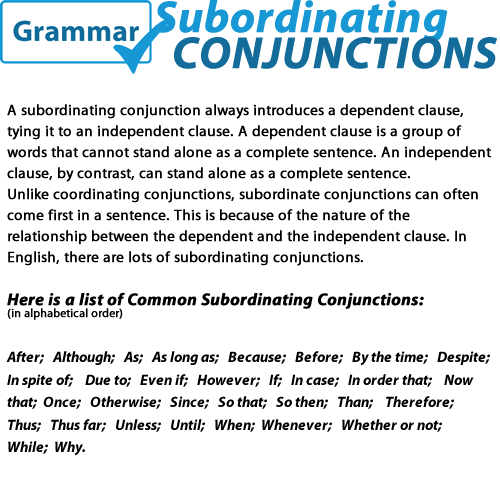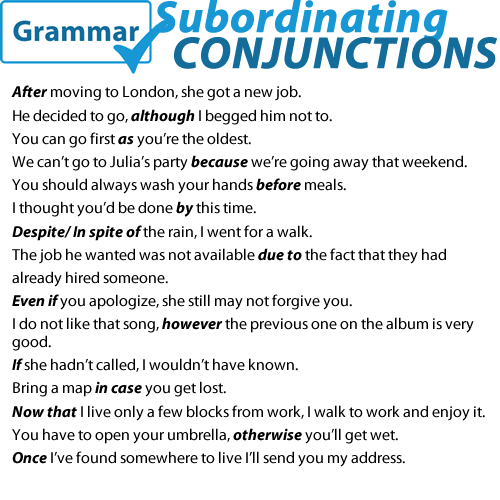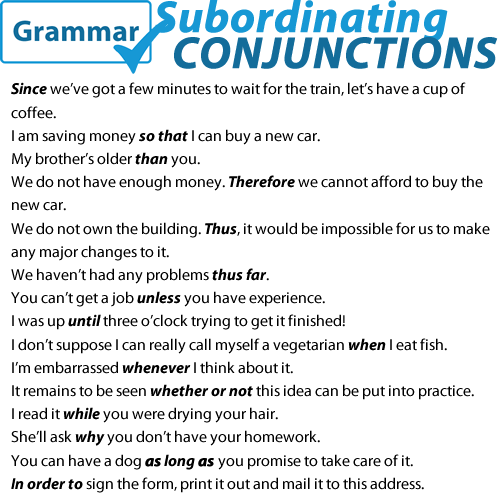
A conjunction is a part of speech that joins two words, phrases, or clauses (both dependent and independent) together. There are three different kinds of conjunctions — coordinating, correlative, and subordinating — each serving a different purpose, but all working to bring words together.
Let’s see how they work…
Coordinating conjunctions are used to join equal sentence parts: single words, phrases, and independent clauses. When two full clauses are joined, they are usually separated by a comma.
Here are some:
For; And; Nor; But; Or; Yet; So;

Correlative conjunctions come in pairs, and you have to use both of them in different places in a sentence to make them work. Correlative conjunctions connect two equal grammatical terms. So, if a noun follows “both,” then a noun should also follow “and.”
Here are some: Either/or; Neither/nor; not only/but also; Both/and; Whether/or;

A subordinating conjunction always introduces a dependent clause, tying it to an independent clause. A dependent clause is a group of words that cannot stand alone as a complete sentence. An independent clause, by contrast, can stand alone as a complete sentence.
Unlike coordinating conjunctions, subordinate conjunctions can often come first in a sentence. This is because of the nature of the relationship between the dependent and the independent clause. In English, there are lots of subordinating conjunctions.



Here are some: after; although; as; as far as; as if; as soon as; because; before; even if; how; if; in case; in that; no matter how; now that; once; provided; since; so that;
supposing; though; unless; until; when; wherever; whether; while; while;
Here are some examples of subordinating conjunctions in use:
- He decided to go, although I begged him not to.
- You can go first as you’re the oldest.
- We can’t go to Julia’s party because we’re going away that weekend.
- Despite/ In spite of the rain, I went for a walk.
- Even if you apologize, she still may not forgive you.
- I do not like that song, however the previous one on the album is very good.
- If she hadn’t called, I wouldn’t have known.
- Bring a map in case you get lost.
- Now that I live only a few blocks from work, I walk to work and enjoy it.
- You have to open your umbrella, otherwise you’ll get wet.
- Once I’ve found somewhere to live I’ll send you my address.
- Since we’ve got a few minutes to wait for the train, let’s have a cup of coffee.
- I am saving money so that I can buy a new car.
- My brother’s older than you.
- You can’t get a job unless you have experience.
- I was up until three o’clock trying to get it finished!
- I don’t suppose I can really call myself a vegetarian when I eat fish.
- I’m embarrassed whenever I think about it.
- It remains to be seen whether or not this idea can be put into practice.
- I read it while you were drying your hair.
- She’ll ask why you don’t have your homework.
- You can have a dog as long as you promise to take care of it.
- In order to sign the form, print it out and mail it to this address.
